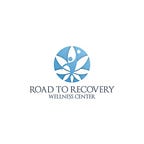Relapse Prevention Guide
Quitting an addiction is a major step in the recovery process, but the work does not stop there. For many substances, the relapse rates are significant enough to make it a sincere possibility for almost anyone who has struggled with addiction. That is why having the right knowledge and resources is just as important when it comes to preventing relapse as it is when first starting recovery. Individuals who are going through this themselves and their family members could benefit from reviewing this relapse prevention guide.
Identify Early Signs of A Relapse
A relapse isn’t something that happens out of the blue. Typically, there are signs that indicate a risk of relapsing days or even weeks prior. Identifying these early signs is ideal to be able to act and intervene sooner rather than later. Early signs of relapse include:
- Mood swings
- Isolation
- Poor eating & sleeping habits
- Thinking about using
- Glamorizing past drinking/drugging
- Lying
- Spending time with old using friends
- Planning your relapse
- Think of ways to better control your using
- Experiencing cravings
Identify, Avoid & Plan for Relapse Triggers
What are your [the user’s] triggers? There are common relapse triggers, but not everyone is going to be affected by the same things in the same ways. A therapist that is experienced in addiction treatment would be able to assist in identify these triggers. Additionally, therapies like CBT are ideal for addressing behaviors that may trigger a relapse and developing new behaviors that minimize relapses.
There is never going to be a world where it is possible to avoid all triggers. For this reason, having a plan for when a trigger does present is a critical aspect of relapse prevention. Consider who you would call or where you would go. Are there certain breathing techniques, mindfulness practices, or mantras that can be used to refocus and cope with the trigger? Maybe a confrontation at work leads to thoughts of using. In this situation, one might step away from the situation, call their sponsor or therapist, take deep breaths together, then search for the soonest support group meeting. This is a good example of a relapse prevention plan for triggers.
Develop a Support System
Support. Support. Support. We can’t emphasize it enough. Let your loved ones know what you are struggling with and how they can help or support you. Also, attend support group meetings like Alcoholics Anonymous or Narcotics Anonymous. Fellow members will know what you are going through and they may relate to many of your thoughts. Together, you can hold each other accountable and talk one another down from thoughts of relapse.
“Quitting smoking is easy. I’ve done it a hundred times.”
– Mark Twain
Address Relapses Head-On
Even if a relapse does occur, it does not have to be the end of the world. Relapse is a part of the recovery process. If you gave up drugs or alcohol once before, you can do it again. However, take this as an opportunity to learn from. What caused the relapse? What could have been done differently that may have prevented the relapse? How can you handle things better if these things come up again in the future? These are all important questions to consider and all things that can be addressed during rehab treatment after a relapse. In many cases, working through this is a part of relapse prevention for individuals who have gone through a treatment program more than once.
Take Things One Day at a Time
Consider the Serenity Prayer, there are things we will be able to control in our lives and things we won’t. We will never know what tomorrow is going to bring because we have little control over the world around us. Just take life one day at a time, one thing at a time, one thought at a time. One day you may be thinking about using, the next day you may or may not still be having those thoughts. Remember your plan and do what you can do based on where you are at that day.
Words of wisdom from our team to you and your loved ones:
“You Can Do This.”
Originally published at https://rtrwellnesscenter.com on October 15, 2020.
